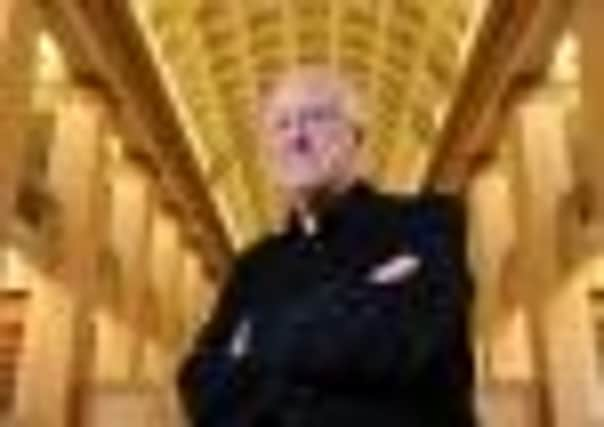Physicist Peter Higgs finds himself stopped in street by fans due to scientific discovery


However, that anonymity is now a thing of the past.
The 83-year-old has earned overnight celebrity status thanks to his prediction during the 1960s of the existence of a new particle, the Higgs boson – which was discovered last year by boffins who have hailed it a science-changing event.
Now the unassuming academic finds people stopping him so they can have their photograph taken with him, his name featuring in hit US sitcom The Big Bang Theory, autograph hunters queuing just to get a copy of his signature – and his face appearing on “Higgs boson” T-shirts.
Advertisement
Hide AdAdvertisement
Hide AdThe quiet physicist admits to being totally stunned, saying: “I’m certainly surprised that it seems to have caught the public’s imagination so much. I didn’t expect that.
“Students will usually ask if I can sign something for them and for a photograph to be taken with them.
“It happens on the streets of Edinburgh too. It’s a bit odd – and it’s certainly a contrast with how I was viewed in the university in the 1960s.”
The expert has also learned of a Dutch couple who have named a yacht after him and a Spanish brewing company which makes a beer called the Higgs Boson Ale.
The interest in the emeritus professor of physics has also resulted in the phrase “Higgsteria” being coined.
One university source said: “He’s gone from being an unassuming academic to an overnight sensation. He is a very quiet, lovely gentleman, so he must find the attention a bit odd.
“But people are in no doubt that when they’re near him, they’re in the presence of genius. His work will rank alongside the greatest theories ever. Higgsteria is here to stay and we’re delighted that he’s one of ours.”
Born in Newcastle, Prof Higgs fell in love with Edinburgh in 1949 after hitchhiking to the city.
Advertisement
Hide AdAdvertisement
Hide AdHe returned five years later to study a post-doctorate degree at Edinburgh University before becoming a lecturer in mathematical physics at the renowned institution in 1960.
Prof Higgs said of his career-defining work: “I suppose I was sticking my neck out in the sense that I was doing a kind of theoretical work that had become unfashionable.
“It took considerable time and the work of a lot of other people to convince even the theoretical physics community that this was the right kind of theory to use.
“But my belief that it would eventually be found was because it was extremely difficult to understand why the rest of the theory could be so successful without that being part of it.”
His radical concept sparked a decades-long effort to detect the piece of matter in experiments, with the search ending last year when scientists at CERN’s Large Hadron Collider (LHC) particle smasher in Switzerland announced they had found a particle consistent with the Higgs boson.
The LHC is the world’s largest and highest-energy particle accelerator and was built in a tunnel 17 miles in circumference near Geneva. The machine was central to the plot of Dan Brown’s fictional thriller Angels & Demons, which involved anti-matter being created at the LHC to be used in a weapon against the Vatican.
Edinburgh University announced last year that The Higgs Centre for Theoretical Physics would be housed at the university’s James Clerk Maxwell Building.
Big bang, no spin
THE Higgs boson particle, often referred to as the God particle, is named after the professor.
Advertisement
Hide AdAdvertisement
Hide AdThe physicist was the driving force behind the proposal in 1964 that suggested such a particle and explained the origin of mass of elementary particles in general.
The particle has no spin, electric charge or colour charge. It is also very unstable, decaying into other particles almost immediately.
The large hadron collider – one of the most expensive and complex experimental facilities to date – was built to create and study Higgs bosons and related questions.
Last year, collider scientists discovered a particle they believed could be the Higgs boson. Tests are going on to confirm the find.
The particle’s discovery would guide other theories in particle physics and potentially lead to developments in technology and improvements to society.